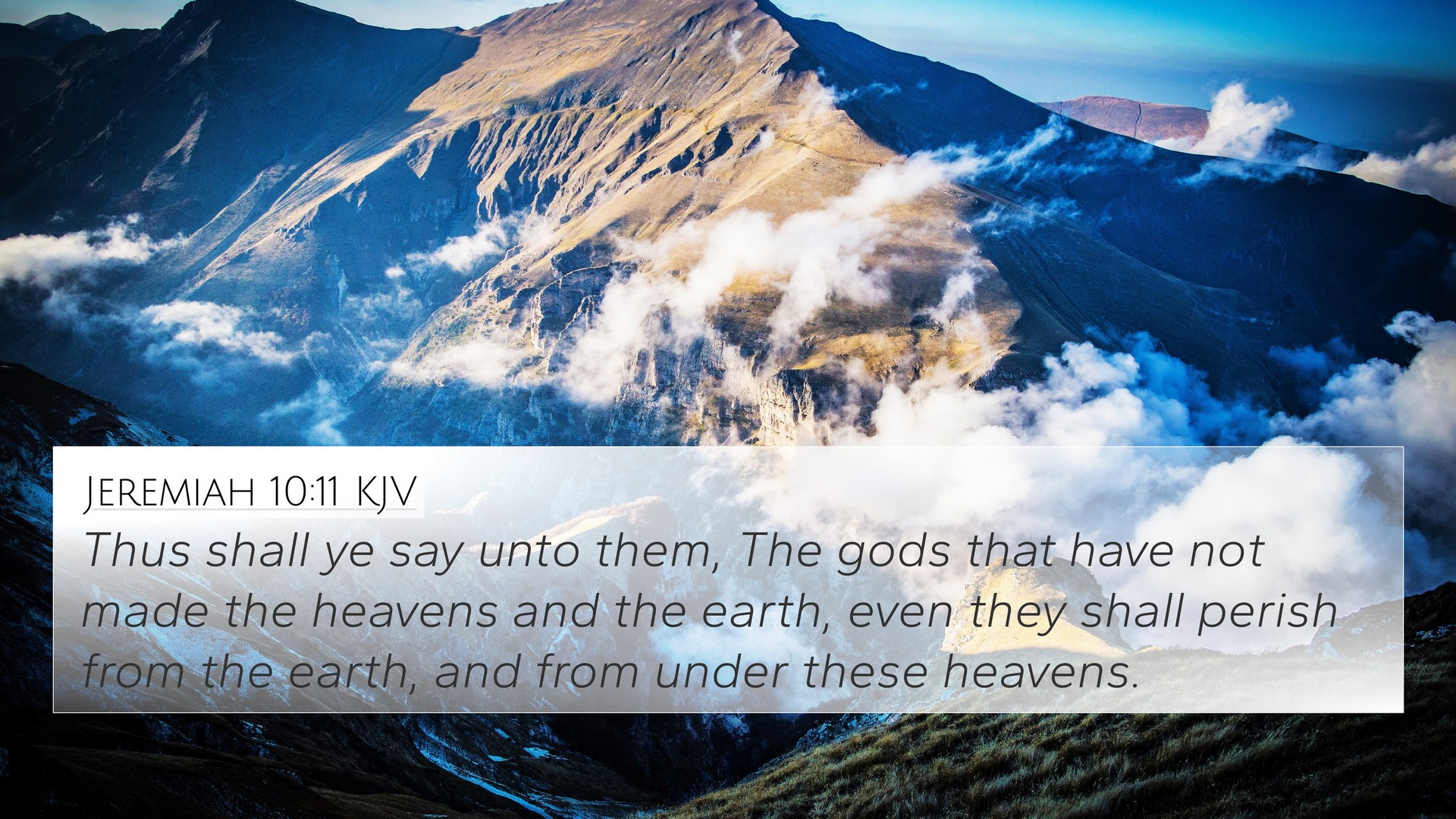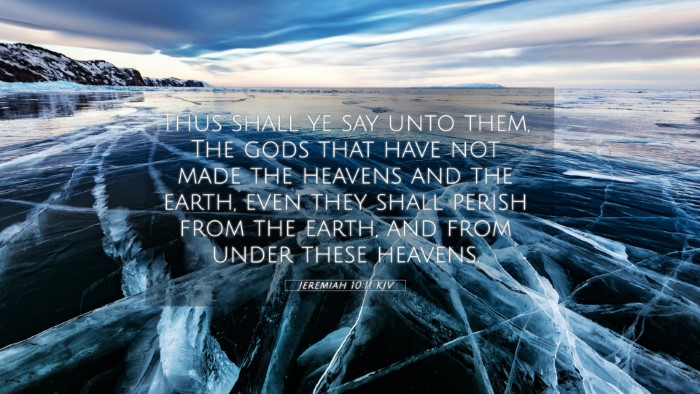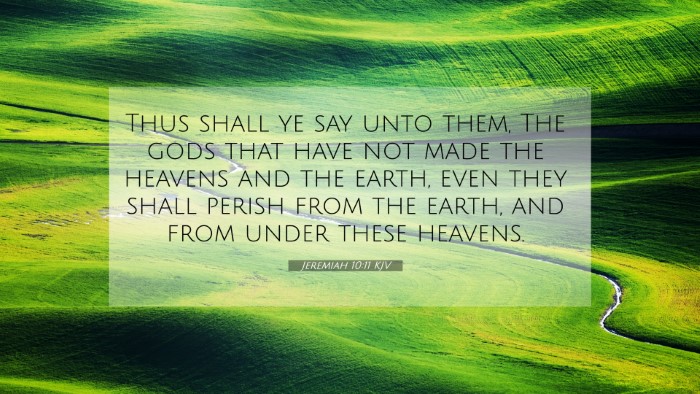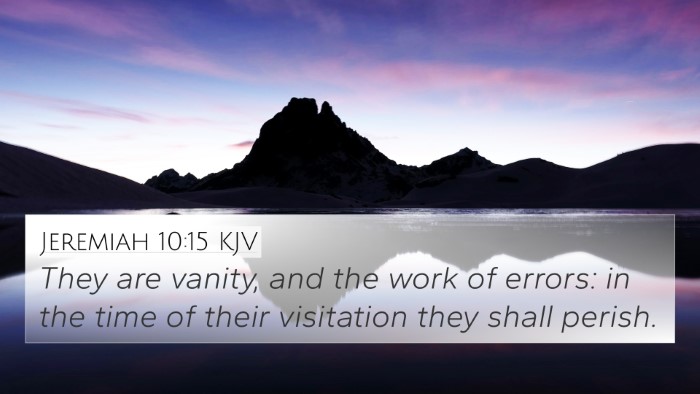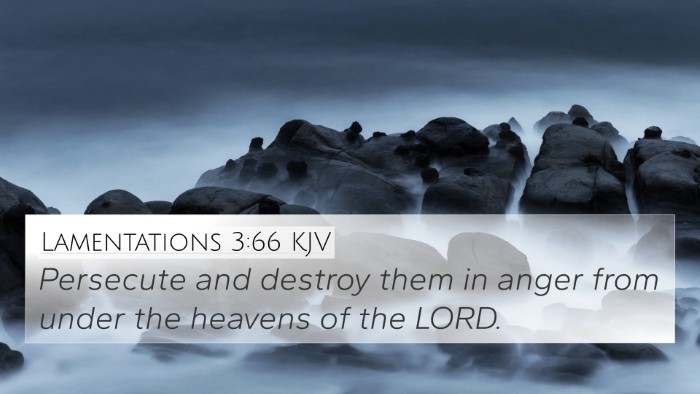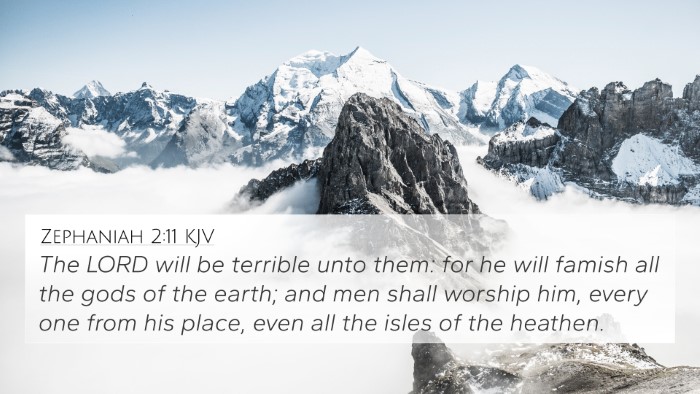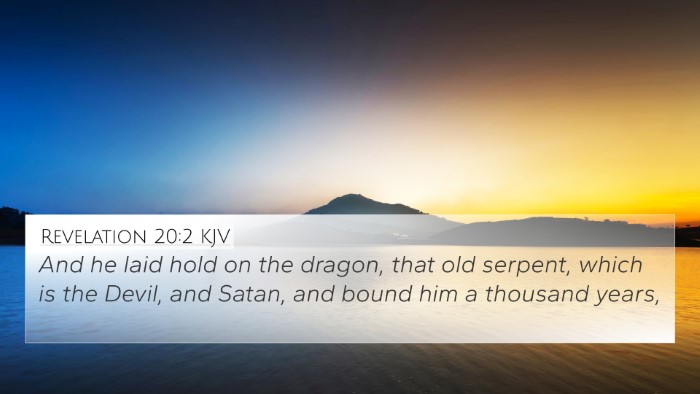Understanding Jeremiah 10:11
Jeremiah 10:11 states: "Thus shall ye say unto them, The gods that have not made the heavens and the earth, even they shall perish from the earth, and from under these heavens." This verse captures the essence of God's supremacy over false gods and emphasizes the futility of idolatry.
In this context, the prophet Jeremiah conveys a key message to Israel concerning the nature of true divinity. The verse serves as a potent reminder that any deity not responsible for the creation of the heavens and the earth is destined for destruction.
Commentary Insights
-
Matthew Henry:
Henry highlights that the verse is a declaration against the idols worshiped by the nations surrounding Israel. He points out that these false gods do not possess the creative power attributed to Yahweh and are ultimately ineffective and transient.
-
Albert Barnes:
Barnes emphasizes the importance of recognizing the one true God who created all things. He interprets this verse as an indictment against the worship of man-made idols, asserting that such practices lead to spiritual and societal decay.
-
Adam Clarke:
Clarke elaborates on the nature of the gods that Jeremiah refers to, noting that they lack the power of creation and are merely the products of human imagination. He suggests that the declaration underscores the need for Israel to return to the worship of the Creator.
Bible Verse Cross-References
Understanding Jeremiah 10:11 is enriched by connecting it with various other Biblical texts. Here are several pertinent cross-references:
- Isaiah 44:9-20: This passage discusses the futility of idol-making and the hollowness of false gods.
- Psalm 115:4-8: The psalmist warns about the idols that have mouths but cannot speak, eyes but cannot see, emphasizing their impotence.
- Acts 17:24-25: Paul reiterates that the true God does not dwell in temples made by hands and is not served by human hands, underlining God’s sovereignty.
- 1 Corinthians 8:4: This verse explains that an idol has no real existence and reinforces the notion that there is only one God.
- Psalm 96:5: The psalmist declares that all the gods of the nations are idols, contrasting them with the Creator's glory.
- Exodus 20:4-5: This commandment explicitly prohibits the making and worship of graven images, affirming God's uniqueness and jealousy.
- Deuteronomy 4:28: It warns of the consequences of idol worship, indicating the dangers of turning away from God.
- Jeremiah 51:17: Reinforcing the idea presented in Jeremiah 10:11, this verse explains that those who indulge in idolatry are foolish.
- Romans 1:22-23: Paul discusses the folly of exchanging the glory of the immortal God for images resembling mortal man, linking back to Jeremiah’s warnings.
- Revelation 21:27: This verse speaks to the ultimate fate of those who worship anything other than the one true God and their exclusion from eternal life.
Thematic Bible Verse Connections
By cross-referencing these biblical texts, we uncover thematic threads that resonate deeply throughout scripture. The motif of idolatry versus the worship of the true Creator is a recurring theme that emerges in both the Old and New Testaments, showcasing the tension between divine sovereignty and human folly.
Common Tools for Bible Cross-Referencing
To explore the connections between Bible verses, one can use various research tools and methods:
- Bible Concordance: This tool assists in locating specific passages and their references quickly.
- Bible Cross-Reference Guide: A compilation of verses linked thematically or contextually can facilitate deeper understanding.
- Cross-Reference Bible Study Techniques: Implementing these methods can enhance one's grasp of the Bible's message.
Conclusion
Jeremiah 10:11 is a poignant verse that challenges believers to evaluate their understanding of God versus the idols that permeate culture. The commentaries of Henry, Barnes, and Clarke provide vital insights into its significance, underscoring a fundamental biblical principle: the Creator alone is worthy of worship, and all else shall perish. As one delves deeper into scripture through cross-referencing and thematic connections, the richness of God's word becomes increasingly apparent, illuminating the path of faithful living in a world full of distractions.
